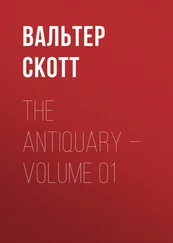Вальтер Скотт - Waverley Novels — Volume 12
Здесь есть возможность читать онлайн «Вальтер Скотт - Waverley Novels — Volume 12» — ознакомительный отрывок электронной книги совершенно бесплатно, а после прочтения отрывка купить полную версию. В некоторых случаях можно слушать аудио, скачать через торрент в формате fb2 и присутствует краткое содержание. Жанр: foreign_antique, foreign_prose, Альтернативная история, на английском языке. Описание произведения, (предисловие) а так же отзывы посетителей доступны на портале библиотеки ЛибКат.
- Название:Waverley Novels — Volume 12
- Автор:
- Жанр:
- Год:неизвестен
- ISBN:нет данных
- Рейтинг книги:5 / 5. Голосов: 1
-
Избранное:Добавить в избранное
- Отзывы:
-
Ваша оценка:
- 100
- 1
- 2
- 3
- 4
- 5
Waverley Novels — Volume 12: краткое содержание, описание и аннотация
Предлагаем к чтению аннотацию, описание, краткое содержание или предисловие (зависит от того, что написал сам автор книги «Waverley Novels — Volume 12»). Если вы не нашли необходимую информацию о книге — напишите в комментариях, мы постараемся отыскать её.
Waverley Novels — Volume 12 — читать онлайн ознакомительный отрывок
Ниже представлен текст книги, разбитый по страницам. Система сохранения места последней прочитанной страницы, позволяет с удобством читать онлайн бесплатно книгу «Waverley Novels — Volume 12», без необходимости каждый раз заново искать на чём Вы остановились. Поставьте закладку, и сможете в любой момент перейти на страницу, на которой закончили чтение.
Интервал:
Закладка:
While such was the temper of the crusaders, the Grecian Emperor did his best through the whole ceremonial to impress on the armed multitude the highest ideas of his own grandeur, and the importance of the occasion which had brought them together. This was readily admitted by the higher chiefs; some because their vanity had been propitiated, — some because their avarice had been gratified, — some because their ambition had been inflamed, — and a few, a very few, because to remain friends with Alexius was the most probable means of advancing the purposes of their expedition. Accordingly the great lords, from these various motives, practised a humility which perhaps they were far from feeling, and carefully abstained from all which might seem like irreverence at the solemn festival of the Grecians. But there were very many of a different temper.
Of the great number of counts, lords, and knights, under whose variety of banners the crusaders were led to the walls of Constantinople, many were too insignificant to be bribed to this distasteful measure of homage; and these, though they felt it dangerous to oppose resistance, yet mixed their submission with taunts, ridicule, and such contraventions of decorum, as plainly intimated that they entertained resentment and scorn at the step they were about to take, and esteemed it as proclaiming themselves vassals to a prince, heretic in his faith, limited in the exercise of his boasted power, their enemy when he dared to show himself such, and the friend of those only among their number, who were able to compel him to be so; and who, though to them an obsequious ally, was to the others, when occasion offered, an insidious and murderous enemy.
The nobles of Frankish origin and descent were chiefly remarkable for their presumptuous contempt of every other nation engaged in the crusade, as well as for their dauntless bravery, and for the scorn with which they regarded the power and authority of the Greek empire. It was a common saying among them, that if the skies should fall, the French crusaders alone were able to hold them up with their lances. The same bold and arrogant disposition showed itself in occasional quarrels with their unwilling hosts, in which the Greeks, notwithstanding all their art, were often worsted; so that Alexius was determined, at all events, to get rid of these intractable and fiery allies, by ferrying them over the Bosphorus with all manner of diligence. To do this with safety, he availed himself of the presence of the Count of Vermandois, Godfrey of Bouillon, and other chiefs of great influence, to keep in order the lesser Frankish knights, who were so numerous and unruly. [Footnote: See Mills, vol. i. chap. 3.]
Struggling with his feelings of offended pride, tempered by a prudent degree of apprehension, the Emperor endeavoured to receive with complacence a homage tendered in mockery. An incident shortly took place of a character highly descriptive of the nations brought together in so extraordinary a manner, and with such different feelings and sentiments. Several bands of French had passed, in a sort of procession, the throne of the Emperor, and rendered, with some appearance of gravity, the usual homage. On this occasion they bent their knees to Alexius, placed their hands within his, and in that posture paid the ceremonies of feudal fealty. But when it came to the turn of Bohemond of Antioch, already mentioned, to render this fealty, the Emperor, desirous to show every species of honour to this wily person, his former enemy, and now apparently his ally, advanced two or three paces towards the sea-side, where the boats lay as if in readiness for his use.
The distance to which the Emperor moved was very small, and it was assumed as a piece of deference to Bohemond; but it became the means of exposing Alexius himself to a cutting affront, which his guards and subjects felt deeply, as an intentional humiliation. A half score of horsemen, attendants of the Frankish Count who was next to perform the homage, with their lord at their head, set off at full gallop from the right flank of the French squadrons, and arriving before the throne, which was yet empty, they at once halted. The rider at the head of the band was a strong herculean figure, with a decided and stern countenance, though extremely handsome, looking out from thick black curls. His head was surmounted with a barret cap, while his hands, limbs, and feet were covered with garments of chamois leather, over which he in general wore the ponderous and complete armour of his country. This, however, he had laid aside for personal convenience, though in doing so he evinced a total neglect of the ceremonial which marked so important a meeting. He waited not a moment for the Emperor's return, nor regarded the impropriety of obliging Alexius to hurry his steps back to his throne, but sprung from his gigantic horse, and threw the reins loose, which were instantly seized by one of the attendant pages. Without a moment's hesitation the Frank seated himself in the vacant throne of the Emperor, and extending his half-armed and robust figure on the golden cushions which were destined for Alexius, he indolently began to caress a large wolf-hound which had followed him, and which, feeling itself as much at ease as its master, reposed its grim form on the carpets of silk and gold damask, which tapestried the imperial foot-stool. The very hound stretched itself with a bold, ferocious insolence, and seemed to regard no one with respect, save the stern knight whom it called master.
The Emperor, turning back from the short space which, as a special mark of favour, he had accompanied Bohemond, beheld with astonishment his seat occupied by this insolent Frank. The bands of the half-savage Varangians who were stationed around, would not have hesitated an instant in avenging the insult, by prostrating the violator of their master's throne even in this act of his contempt, had they not been restrained by Achilles Tatius and other officers, who were uncertain what the Emperor would do, and somewhat timorous of taking a resolution for themselves.
Meanwhile, the unceremonious knight spoke aloud, in a speech which, though provincial, might be understood by all to whom the French language was known, while even those who understood it not, gathered its interpretation from his tone and manner. "What churl is this," he said, "who has remained sitting stationary like a block of wood, or the fragment of a rock, when so many noble knights, the flower of chivalry and muster of gallantry, stand uncovered around, among the thrice conquered Varangians?"
A deep, clear accent replied, as if from the bottom of the earth, so like it was to the accents of some being from the other world, — "If the Normans desire battle of the Varangians, they will meet them in the lists man to man, without the poor boast of insulting the Emperor of Greece, who is well known to fight only by the battle-axes of his guard."
The astonishment was so great when this answer was heard, as to affect even the knight, whose insult upon the Emperor had occasioned it; and amid the efforts of Achilles to retain his soldiers within the bounds of subordination and silence, a loud murmur seemed to intimate that they would not long remain so. Bohemond returned through the press with a celerity which did not so well suit the dignity of Alexius, and catching the crusader by the arm, he, something between fair means and a gentle degree of force, obliged him to leave the chair of the Emperor, in which he had placed himself so boldly.
"How is it," said Bohemond, "noble Count of Paris? Is there one of this great assembly who can see with patience, that your name, so widely renowned for valour, is now to be quoted in an idle brawl with hirelings, whose utmost boast it is to bear a mercenary battle-axe in the ranks of the Emperor's guards? For shame — for shame — do not, for the discredit of Norman chivalry, let it be so!"
Читать дальшеИнтервал:
Закладка:
Похожие книги на «Waverley Novels — Volume 12»
Представляем Вашему вниманию похожие книги на «Waverley Novels — Volume 12» списком для выбора. Мы отобрали схожую по названию и смыслу литературу в надежде предоставить читателям больше вариантов отыскать новые, интересные, ещё непрочитанные произведения.
Обсуждение, отзывы о книге «Waverley Novels — Volume 12» и просто собственные мнения читателей. Оставьте ваши комментарии, напишите, что Вы думаете о произведении, его смысле или главных героях. Укажите что конкретно понравилось, а что нет, и почему Вы так считаете.












